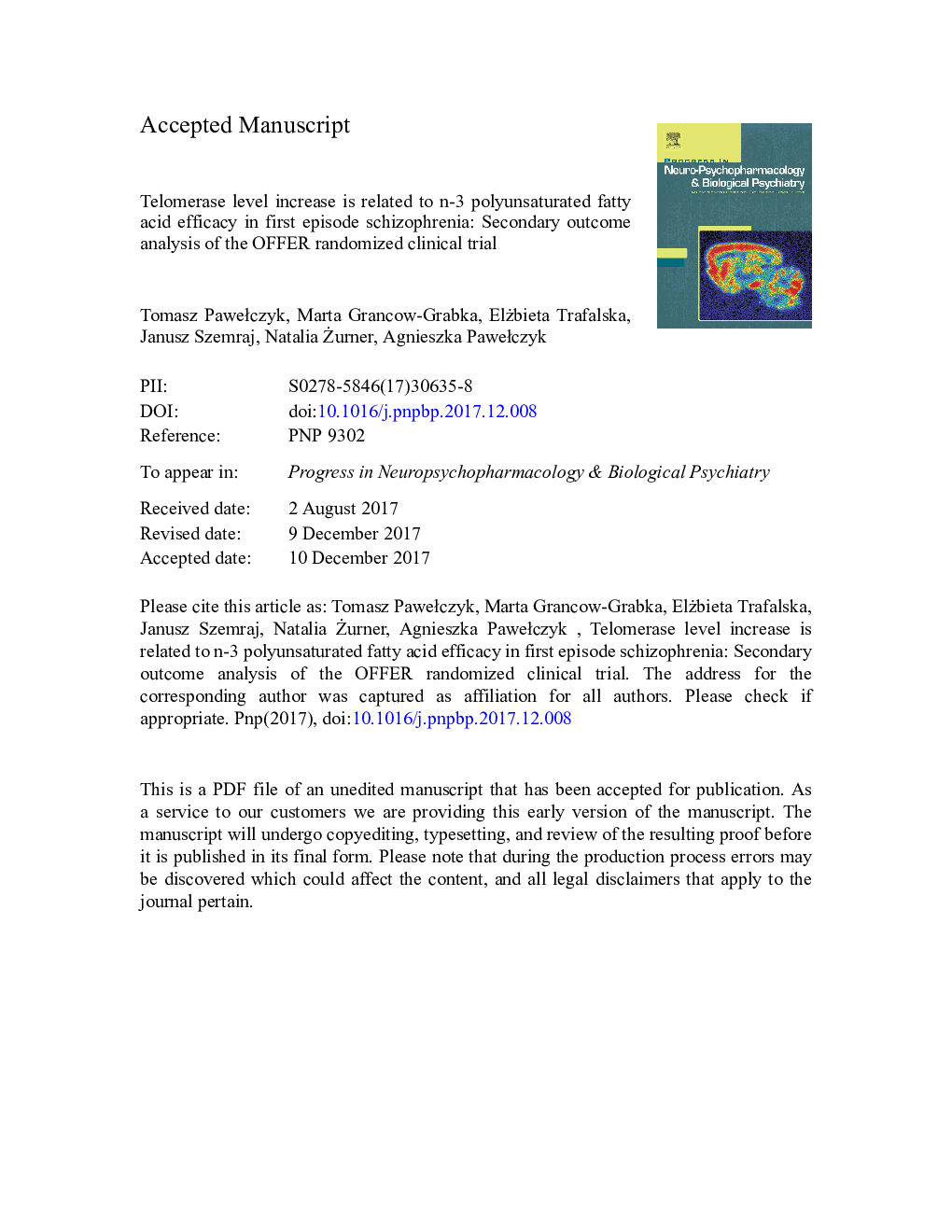| Article ID | Journal | Published Year | Pages | File Type |
|---|---|---|---|---|
| 8537376 | Progress in Neuro-Psychopharmacology and Biological Psychiatry | 2018 | 29 Pages |
Abstract
Schizophrenia is associated with shortening of the lifespan mainly due to cardiovascular events, cancer and chronic obstructive pulmonary disease. Both telomere attrition and decrease of telomerase levels were observed in schizophrenia. Polyunsaturated fatty acids (PUFA) influence multiple biochemical mechanisms which are postulated to accelerate telomere shortening and limit the longevity of patients with schizophrenia. Intervention studies based on add-on therapy with n-3 polyunsaturated fatty acids (n-3 PUFA) in patients with schizophrenia did not assess the changes in telomerase levels. A randomized placebo-controlled trial named OFFER was designed to compare the efficacy of a 26-week intervention composed of either 2.2 g/day of n-3 PUFA or olive oil placebo with regard to symptom severity in first-episode schizophrenia patients. The secondary outcome measure of the study was to describe the association between the clinical effect of n-3 PUFA and changes in telomerase levels. Seventy-one patients aged 16-35 were enrolled in the study and randomly assigned to the study arms. The Positive and Negative Syndrome Scale (PANSS) was used to assess the change in symptom severity. Telomerase levels of peripheral blood mononuclear cells (PBMC) were assessed at three points: at baseline and at weeks 8 and 26 of the intervention. A significantly greater increase in PBMC telomerase levels in the intervention group compared to placebo was observed (p < 0.001). Changes in telomerase levels significantly and inversely correlated with improvement in depressive symptoms and severity of the illness. The efficacy of a six-month intervention with n-3 PUFA observed in first-episode schizophrenia may be related to an increase in telomerase levels.
Related Topics
Life Sciences
Neuroscience
Biological Psychiatry
Authors
Tomasz PaweÅczyk, Marta Grancow-Grabka, Elżbieta Trafalska, Janusz Szemraj, Natalia Å»urner, Agnieszka PaweÅczyk,
